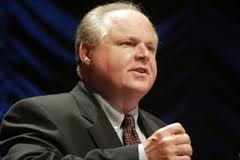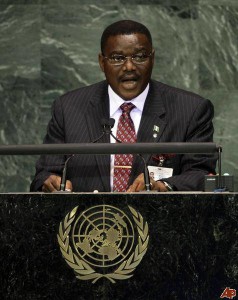In Israel, journalists who spent their careers analyzing, covering, and skewering Israel’s politicians have begun to jump into politics themselves probably to prove what they preach.
Associated Press reports say that four prominent Israeli TV anchors and news pundits are leaving their jobs and running for parliament in Israel’s upcoming elections, reflecting the rising star power of media personalities for an electorate that has long had a penchant for retired army generals.
This is a healthy development and a trend that similar media pundits and commentators in the United States should emulate. In thinking about the prospects of having journalists or prominent media commentators occupy various legislative and executive offices in Washington and different states, I am reminded of what one of my teachers in the University called the “god complex” in journalists. By this, he meant the tendency among journalists to play the god role in society, arrogating to themselves absolute knowledge of everything and having the answer to a myriad of society’s problems. Journalists are wont to criticizing public office holders for malfeasance but in many instances when journalists assume public offices, they have not done any better.
The “god complex” afflicting most media professionals notwithstanding, imagine for a moment what America’s public policy will be if the likes of Rush Limbaugh, Sean Hannity of Fox News, Rachel Maddow of MSNBC, Chris Mathews of MSNBC, Mark Levin, and other radio and television talk show hosts.
The recent surge of journalists-turned-politicians reflects in part a desire for new blood in a political scene long dominated by the same faces. Frequent corruption cases against figures in power in recent years only increase the appeal of those coming from outside the ranks of career politicians. The media stars seen nightly on TV or read daily in newspapers have the advantage of being both new and familiar.
For the first time in Israel, two significant political parties are entering the fray with well-known TV news celebrities at the helm. Elections are scheduled for Jan. 22.
Popular prime-time TV man Yair Lapid quit his job this year as weekend newsmagazine anchor on Channel 2 TV and formed his own political party, Yesh Atid, or “There is a Future.”
And the center-left Labor Party is headed by former TV and radio commentator Shelly Yachimovich, who joined the media-to-politics wave several years ago and was elected party leader late last year.
More journalists are following the path in this election. This week, another high-profile commentator, Ofer Shelah, announced he was joining Lapid’s party, and two other media figures said they would run for parliament on the Labor Party list.
Surveys are predicting that Labor and Yesh Atid, both appealing to centrist, middle-class voters, will have strong showings in the vote, albeit behind the leading, right-wing ticket of Prime Minister Benjamin Netanyahu and Foreign Minister Avigdor Lieberman. Under Israel’s system of proportional representation, the number of votes a party receives determines how many seats it controls in the 120-member parliament.
The newcomers join 11 former media figures in the outgoing parliament in parties spanning the spectrum from the liberal Meretz and centrist Kadima parties to the ultranationalist Yisrael Beitenu and Netanyahu’s ruling Likud.
Notably, the number of former journalists in the outgoing parliament is the same as the number of former top security officials, a sign of how the media is beginning to rival a traditional main wellspring of Israel’s political elite. Facing frequent wars, Israelis historically have liked having former military chiefs lead the country, and that sentiment still largely remains. But media personalities are loosening the generals’ grip on the political helm, in part because they’re even more well-known.
“They are known in every home. People like them,” said Israeli media expert Yoram Peri. “Recognition has become very important.”
The ex-journalists say they’ve jumped ship for politics for the same reason they went into the media world: a desire to have an impact on society.
“My entire adult life I have been a social activist and feminist, along with my journalistic work…I worked to right wrongs,” Haaretz commentator Merav Michaeli, who hopes to represent Labor, wrote on her Facebook page. “Now I want to do that in the political domain, where things are decided and budgets are divided.”
“I want to have an impact,” said Nachman Shai, former Army Radio chief editor and television executive who served as a lawmaker in the Kadima party. “You can only have an impact where decisions are made.” With Kadima sinking in the polls, Shai recently moved to the Labor Party in hopes of being re-elected.
But some are concerned about skewed news coverage when a journalist is mulling a political plunge.
One lawmaker petitioned the Israel Press Council this week to draft regulations to ensure that working journalists disclose their deliberations about running for office. “The conduct we are witnessing at this time seems to cross red lines,” said Likud politician Yariv Levin.
In a televised debate on the issue, blogger and journalist Tal Schneider said the phenomenon shamed the profession by compromising its ethical bedrock, impartiality. “If journalists say they want to go into politics, what does it say about the years they worked (in the field) and how they worked?” she said.
Senior Israeli commentator Dan Margalit accused his colleagues of hypocrisy.
“Day after day, journalists and tycoons have prattled on and on about how Israel’s best citizens stay away from entering politics,” Margalit wrote in Israel Hayom, a free daily loyal to Netanyahu. “Many of those same jabberers now want to join the politicians they demonized daily.”
Media and politics have been closely connected since the days of Israel’s founding fathers, notes media expert Peri, director of the Gildenhorn Institute for Israeli Studies at the University of Maryland.
Theodor Herzl, the founder of modern political Zionism, came to champion the quest for a Jewish homeland after covering for a Viennese newspaper the 19th-century trial of French Jewish officer Alfred Dreyfus, sentenced for treason in a trial Herzl saw as anti-Semitic. Herzl’s successor as head of the World Zionist Organization, Nahum Sokolov, was a journalist. Two of Israel’s first political party leaders were newspapermen.
But for years, Israeli politics was heavily driven by parties, not the personalities who led them. Voters voted for parties with clear ideologies and long-time members. That changed in the 1990s: political parties weakened as voters began to favor individual candidates, many of whom had no political experience.
The phenomenon dovetailed with the introduction of commercial television in Israel in 1993, after a single state-run channel monopolized coverage for nearly three decades, Peri said. More programming on television meant more TV celebrities, and those celebrities began to be considered as attractive candidates for office.
Gadi Wolfsfeld, a professor of political communication at the Interdisciplinary Center in Herzliya, said Israeli journalists may have spent their careers covering politics, but it doesn’t prepare them any better than a general or lawyer who enters politics.
“The best training for a politician is being a politician,” Wolfsfeld said.
DANIEL ESTRIN of AP contributed parts of this article
contributed parts of this article






